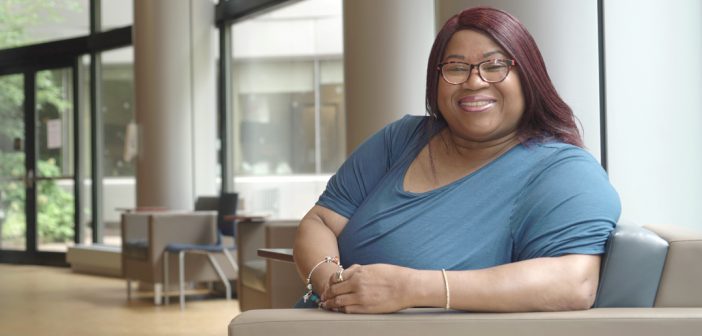Though her last post was focused on residential students, she said she has always attempted to break down perceived and literal walls that separated commuter students from residents.
“We want to make sure students feel a part of the fabric of the University and Lincoln Center in particular, so we have engaged in more commuter-friendly timelines for activities,” she said. She’s also made a concerted effort to develop a “commuter affiliates program” that allows commuter students to visit their residential friends during certain hours with relative ease. There will, of course, continue to be events that cater to the residential community as well.
Campbell said that recent renovations and ongoing plans for physical spaces in and around the Lincoln Center campus have created opportunities for the student community to mix and grow organically, not just through events and clubs. Now chance encounters occur at Argo Café, the lounge areas of the sixth-floor hallway, and in the study space at Quinn Library, to name just a few spots.
Diversity as an Asset to be Maintained
Lincoln Center’s diverse student body is one of its great strengths, she said, not just for that campus but for the entire University. Campbell continues to work closely with the Office of Multicultural Affairs to train her staff and student leadership on diversity, equity, and inclusion initiatives.
“We are very intentional about making certain that students have the toolkits available so they can have those conversations,” she said.
Student mentors and resident assistants go through a series of modules including diversity, equity, and inclusion two weeks prior to the start of the semester and then continue similar training throughout the entire school year, she said.
Campbell’s office has also made an intentional effort to recruit students of color to become residential assistants and first-year mentors. She noted that she often draws from the diverse group of commuter students for these posts. Most commuter students weren’t aware of these because they simply couldn’t afford to live on campus, she said. However, stipends and scholarships have provided a pathway for them to move into the residence halls and become resident assistants. And they can be residential or commuter student mentors regardless of where they live.
“We now have an increased number of student leaders of color that reside on campus to make certain that students from all communities that live here feel supported,” she said.
She noted that diversity isn’t just about race; students also hold a diversity of interests, which can be tapped into in the variety of clubs and activities on offer at the college. She said she also stays in constant communication with departments that mirror her own department’s diverse community-building programs, such as Campus Ministry.
“One of my former resident assistants identified as a Muslim and he got involved through Campus Ministry to go on a retreat, and it changed his life,” she said. “He was able to understand Catholicism and Judaism and what that meant to who he was as a Muslim.”
Bouncing Back From Time Apart
Campbell said that without question, the pandemic presented steep challenges to fostering community, even though about two-thirds of Fordham’s residential students chose to return when the halls reopened.
“In the coming year, I think our goal will be to reach out to those students who were here and those who were not, because regardless they’ve experienced a lot of trauma and we need to provide a level of support to get them engaged and offer counseling if they need it,” she said.
For that effort she’s been working closely with Counseling and Psychological Services.
“This year it’ll be about getting accustomed to each other because they’ve been away from each other for so long.”
Personal Experience of Fordham Community
Campbell is preparing for the new semester by reading history books and vacationing with family in Maryland. She’s spent a bulk of her academic career in that region; she earned her bachelor’s at Catholic University of America in Washington, D.C., where she majored in business and sociology, and later got her master’s in counseling at Trinity Washington University. It was there that she began to think of a career in academia.
“I believe that you bring into existence the things in your life that you want to have happened,” she said. “I was living in D.C. in 1990 and was talking to a colleague and friend, Tom Ellett, who was talking about the cohort experience of getting his doctorate at Fordham. And I thought, ‘Oh, I’m going to do that one day.”
It was fortuitous, she said, that she moved back near her hometown of Newark, New Jersey, in 2003, which eventually led to a job offer at Fordham in 2007. She later earned her Ed.D. at Fordham’s Graduate School of Education. She also got to be close to home at a difficult time.
“God put me in this area for a reason, because two years [after moving back to Newark]I found out that my mom had lung cancer,” she said. Campbell lost her mother in 2009, and within a year and a half, she also lost her grandmother and her aunt. Losing the three most significant women in her life while she navigated her new job at Fordham made her realize that Fordham didn’t just talk the talk of community.
“I can’t tell you how I felt when I saw those Fordham vans show up with my colleagues and students to support me at my mother’s funeral just two years into my time here. They could have sent flowers or a card,” she said.
She wiped a tear and continued.
“From that experience, I really do embrace the fact that care for the whole person really does happen here,” she said.



